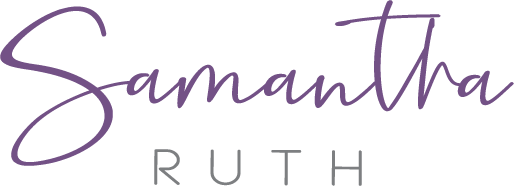Press











ABOUT Sam
SERVICES
Team Ruthless
EVENTS
GRIEFHAB™
PODCAST
RETREATS
shop
HEALING TOGETHER THROUGH THE HOLIDAYS - MAIN EVENT
HEALING TOGETHER - FOR A CAUSE: VIRTUALLY
HEALING TOGETHER - FOR A CAUSE: PILATES IN THE PARK - MICHIGAN
HEALING TOGETHER - FOR A CAUSE: VISIBLE - COLORADO
September 6-7
Jimtember Virtual Jubilee
blog
December 2nd - 8th / Metro Detroit AND VIRTUALLY
August 27th & 28th
August 30-31st
rUTHLESS IN THE ROCKIES
TEAM RUTHLESS
THE CONFIDENCE CONFERENCE
mOBILE rECOVERY dAY
Next event: September 10-23rd, Colorado
October 5-6th -
Virtual Event
September 30th, Castle Rock, Colorado
7 Groups Every week Plus Every Holiday
HEALING TOGETHER - FOR A CAUSE: Ride & ROAR - DALLAS
October 11 -12th
Stay Tuned!
FACES OF GRIEF
JOIN US
Children Returning to School with Anxiety? There are programs that can help!
Anxiety, Children, Disorders, Emotional Health, Ideas, Inspiration, Mental Health, Mental Illness, Teenagers
August 11, 2020
Returning to school for the 20-21 school year is in full swing and the excitement behind the usual back-to-school shopping, preparation and celebrations will be a far cry from ordinary.
I’m seriously concerned for not only the physical health and safety of our kids and teachers but also their mental health. Anxiety is at an all-time high due to our new ways of living- masks on, social distancing, obsessively sanitizing hands to name a few. My question is, how will a teacher know when a child is suffering from massive anxiety? Or any mental health issue for that matter?! What systems, programs or safe words are in place that can allow children to safely raise their hands and say “I’m feeling anxiety” without being judged or brushed off? After all, they can raise their hands to use the restroom or let someone know they aren’t physically feeling well, why not for anxiety?
Did you know that there are programs in place that require the school to create a plan for your child? Furthermore, the program applies to any school age including college. Have you heard of the IEP plan and section 504? Mental health is an automatic qualifier for one of these plans with your child. Yes, you read that correctly, schools are required to create an individual plan for your child to succeed in their educational environment. If you have been informed otherwise, you have been mislead. IEP plans cover students who qualify for Special Education. However, section 504 covers students who don’t meet the criteria for special education but who still require some accommodations. Both ensure that students with emotional distress or disabilities have access to a free and appropriate public education and mental health. The options are limitless if you know your rights.
I also suggest that you have an advocate on or off campus that can help you navigate this. As a society we don’t role model openly, discussing our issues. Students with mental health issues feel “different” and desperately want to be like all the “normal” kids (whatever that is). Because of this most students suffer in silence. This should not be happening. Find a person, (counselor, teacher, parent) that they feel safe saying “I’m not doing so great today” to. Determine who your child’s advocate can be in a meeting requesting an individual plan. Is it someone you know and trust? More importantly, is it someone your child knows and trusts?
Make sure that you add finding an advocate and getting this plan in place to your back-to-school list, because it is always better to have in place before any problems occur. This can help you avoid a crisis and should you have a crisis, your child as the school will know how to succeed even during a crisis.
When developing an individual plan with your school, here are a few suggestions that I offer to my clients with kids that have had or are starting to experience anxiety. First, create a safe word or a certain hand raise that can be used to signal the teacher. Secondly, I like to suggest that students get permission to walk around a track or secured playground, because movement can help them refocus. Last but never least, another great tool to have is an “anytime passes” so they can leave without having to discuss with the teacher. The teacher should be aware of all of this beforehand.
In closing, please know that anxiety isn’t weakness. It takes a strength that most will never know when it comes to raising your hand and asking for help. Your child needs to know that it is okay to raise their hand and that there is a solid plan in place for them.
I’m here should you have any questions or if you need an advocate for you or your child.
Please just raise your hand,
Sam
Leave a Reply Cancel reply
120 E. Front St. Loft 2 Traverse City MI 49684 &
77 Monroe Center St Ste 600 Grand Rapids MI 49503
phone : +1 (231)707-0707


Donate TO GRIEFHAB™
Donate today to help make our events and services free for everyone.
You can also donate directly to support a specific client in need.
four
three
info & Investment
two
THE FOUNDER
one
fIVE
GRAB A COPY OF MY
BOOKS & MERCHANDISE
four
three
info & Investment
two
THE FOUNDER
one


fIVE
GRAB A COPY OF MY
BOOKS & MERCHANDISE










HEALING TOGETHER EVENT
EVENTS
four
three
info & Investment
two
THE FOUNDER
one
fIVE
GRAB A COPY OF MY
BOOKS & MERCHANDISE
four
three
info & Investment
two
THE FOUNDER
one





fIVE
GRAB A COPY OF MY
BOOKS & MERCHANDISE










FACEBOOK FAMILY
GRIEFHAB™ SERVICES
FACES OF GRIEF
Our Press Features
THE BE RUTHLESS SHOW
two
three
Recent Articles
one





Coming in September! Stay Tuned.
December 2nd -8th / Metro Detroit AND VIRTUALLY
August 25th
August 30-31st
October 11 -12th
Stay Tuned!










four
three
info & Investment
two
THE FOUNDER
one





fIVE
GRAB A COPY OF MY
BOOKS & MERCHANDISE
four
three
info & Investment
two
THE FOUNDER
one





fIVE
GRAB A COPY OF MY
BOOKS & MERCHANDISE









